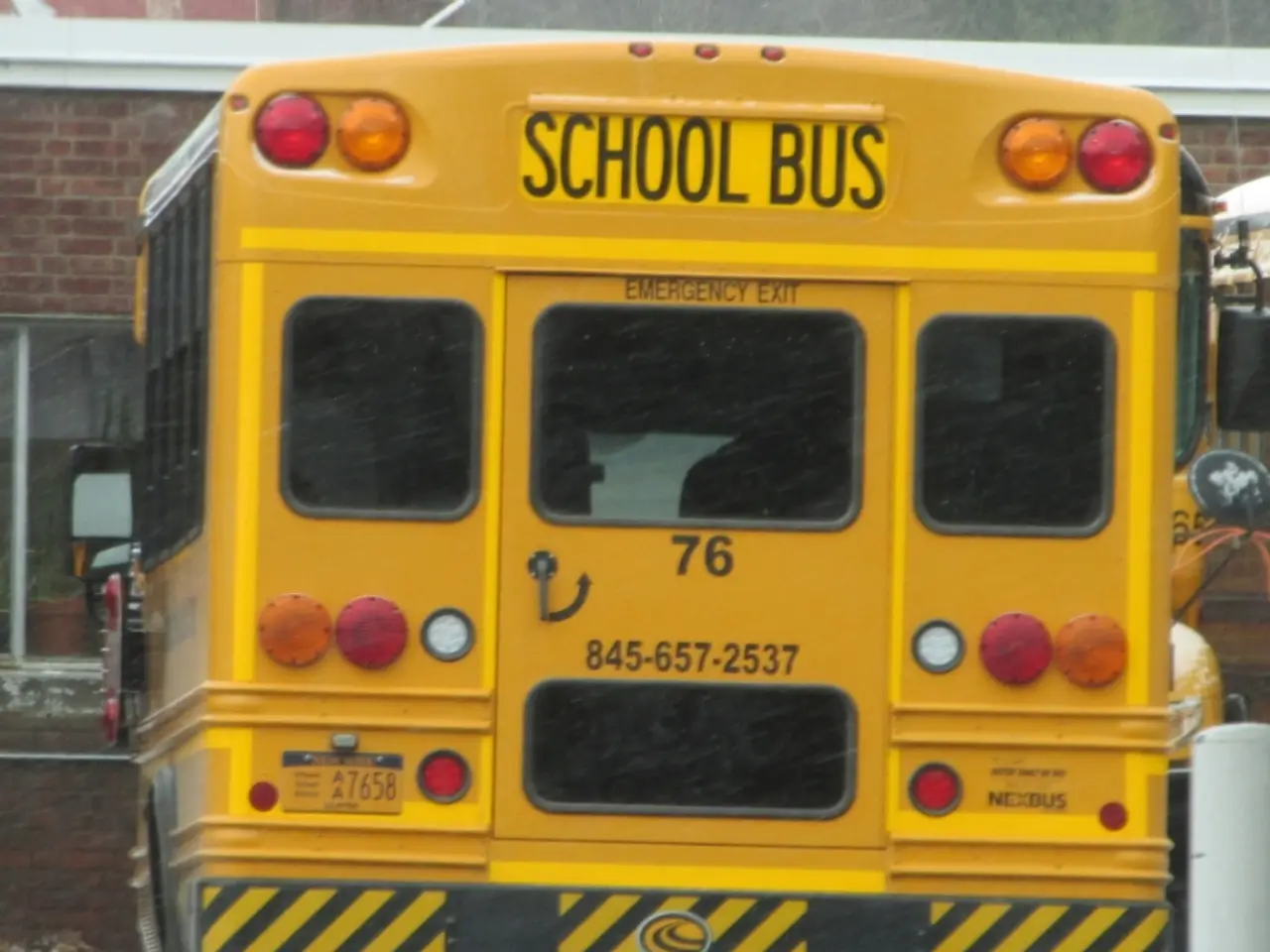English proficiency exams for toddlers: Call for a legal prohibition?
In a bid to safeguard child development, promote equity, and curb the commercialization of early childhood education, a new bill has been proposed in South Korea. The bill, introduced by Rep. Kang Kyung-sook, aims to limit intensive English education for young children by banning private English instruction for children under 36 months and capping lessons for those aged 3 and older to a maximum of 40 minutes per day.
The bill is motivated by concerns over child development, rights, and social equity, targeting the intense and early push for English proficiency in toddlers. The primary debate centres on balancing early language learning advantages against the risks of excessive academic pressure and commercialization of early childhood education.
The bill emphasizes that early childhood is a crucial period for natural learning through play and physical and mental growth. It argues that intensive English education at this stage interferes with healthy development. Furthermore, it suggests that private English education for toddlers yields limited benefits relative to the excessive cost, time, and difficulty it imposes on children and families.
The bill also raises concerns about potential violations of young children’s rights, implying that intense academic pressure at a very young age may be harmful. It responds to the growing craze among parents, especially in affluent areas like Seoul’s Gangnam district, to enrol very young children in English kindergartens and preparatory courses aiming for elite school admissions.
While the bill has garnered support from many, it has also sparked concerns. Some parents claim that restricting private education constitutes an excessive violation of their personal freedoms. A 35-year-old office worker in Seoul, whose 3-year-old son attends an English kindergarten in Bundang, Gyeonggi Province, argues that regulating education choices through law doesn’t align with the principles of a democratic society.
Violators could face penalties such as suspension of business or revocation of business licenses. The average daily lesson time at English kindergartens is five hours and eight minutes, much longer than the lesson time for first and second graders in elementary school in 2024.
The bill seeks to amend the current law regulating the private education industry. Nine out of 10 daycare and kindergarten teachers nationwide are skeptical about English education for young children. A survey revealed that 87.7 percent of respondents consider English instruction offered by institutions like English kindergartens as unnecessary.
Other suggested solutions include enhancing parental guidance on early development and regulating academies targeting young learners. Interestingly, 65.6 percent of respondents support expanding public education as a potential solution. Last year, private academies in five cities across Gyeonggi Province offered 376 English classes for toddlers, an increase of 101 from the previous year.
The most serious issue with early English learning, according to 63.5 percent of respondents, is caregivers demanding academic performance from children without considering their developmental stage. Meanwhile, 62.7 percent of respondents call for reforms to the entrance exam-oriented education system.
The trend of early English education is spreading beyond Gangnam, according to a joint survey. Private English academies, commonly known as English kindergartens, have long catered to parents seeking early exposure to English for their children. One famous English kindergarten with three branches in Gangnam requires prospective students as young as 3 years old to take an entrance exam.
However, the education ministry's regret over downgrading AI educational tools signals tensions about controlling educational content and methods, though this is distinct from the English education bill. There may also be concerns about limiting parental choice and market freedom for private education providers.
In conclusion, the proposed bill in South Korea aims to protect the well-being of young children by limiting intensive English education. The debate surrounding this bill underscores the importance of striking a balance between early language learning advantages and the risks of excessive academic pressure and commercialization of early childhood education.
The debate surrounding the proposed bill in South Korea emphasizes the need to balance early language learning advantages with the risks of excessive academic pressure and the commercialization of early childhood education, specifically intensive English education. Some argue that restricting private education choices violates personal freedoms, a concern that sits at odds with the principles of a democratic society.
Supporters of the bill raise concerns about potential violations of young children’s rights, citing the risk of intense academic pressure at a very young age being harmful. They further suggest that regulating academies targeting young learners and expanding public education could be potential solutions to address the growing craze for enrolling very young children in English kindergartens and preparatory courses.




